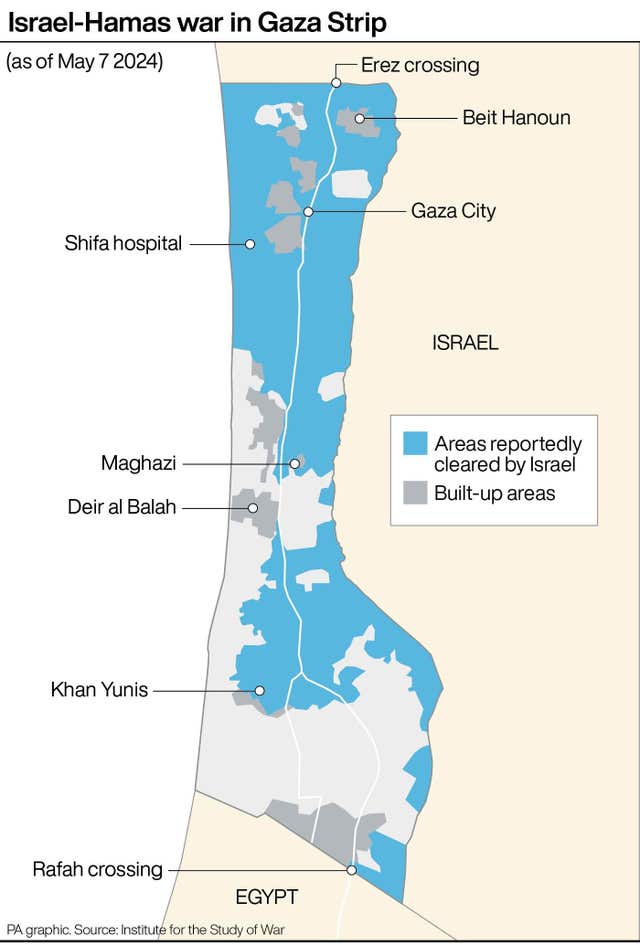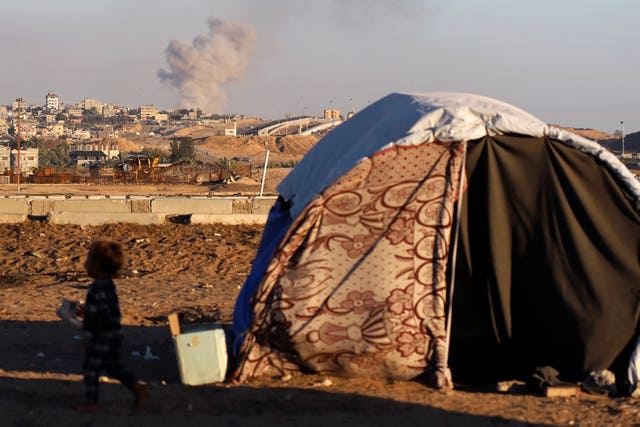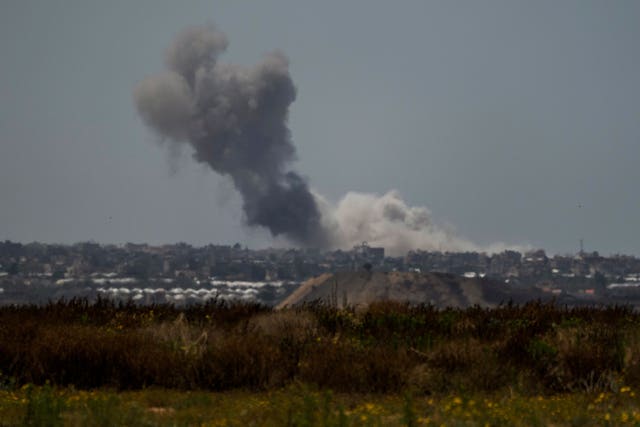The Israeli military said it has reopened its Kerem Shalom crossing into Gaza after days of closure, but the UN said no humanitarian aid has yet entered.
The UN also said there is no-one to receive the aid on the Palestinian side after workers fled during Israel’s military incursion in the area.
The Kerem Shalom crossing between Gaza and Israel was closed over the weekend after a Hamas rocket attack killed four Israeli soldiers nearby, and on Tuesday, an Israeli tank brigade seized the nearby Rafah crossing between Gaza and Egypt, forcing its closure.

The two facilities are the main terminals for entry of food, medicine and other supplies essential for the survival of Gaza’s population of 2.3 million Palestinians.
The Israeli foray did not appear to be the start of the full-scale invasion of the city of Rafah that Israel has repeatedly promised.
But aid officials warn that the prolonged closure of the two crossings could cause the collapse of aid operations, worsening the humanitarian crisis in Gaza, where the UN says a “full-blown famine” is already under way in the north.
The United States paused a shipment of bombs to Israel last week over concerns that Israel was approaching a decision on launching a full-scale assault on Rafah, in a further widening of divisions between the two close allies.
The US says it is concerned over the fate of around 1.3 million Palestinians crammed into Rafah, most of whom fled fighting elsewhere.
Israel says Rafah is Hamas’s last stronghold and that a wider offensive there is needed to dismantle the group’s military and governing capabilities.
The US, Egypt and Qatar are meanwhile ramping up efforts to close the gaps in a possible agreement for at least a temporary ceasefire and the release of some of the scores of Israeli hostages still held by Hamas.
Israel has linked the threatened Rafah operation to the fate of those negotiations.
CIA chief William Burns, who has been shuttling around the region for talks on the ceasefire deal, met on Wednesday with Israeli Prime Minister Benjamin Netanyahu, a US official said.
With the seizure of Rafah, Israel now controls all of Gaza’s crossings for the first time since it withdrew troops and settlers from the territory nearly two decades ago, though it has maintained a blockade with Egypt’s co-operation for most of that time.

The Rafah crossing has been a vital conduit for humanitarian aid since the start of the war and is the only place where people can enter and exit.
Kerem Shalom is Gaza’s main cargo terminal.
UN World Food Programme (WFP) deputy executive director Carl Skau told The Associated Press that the UN agency has lost access to its Gaza food warehouse in Rafah, which he says was “communicated as a no-go zone”.
“We understand that it’s still there, but we are extremely worried of looting,” Mr Skau said during a visit to neighbouring Lebanon, adding that a UN logistics warehouse in Rafah had already been looted.
He said the WFP was able to secure a warehouse in Deir al-Balah, in central Gaza, but has not stocked it with food yet.
Associated Press journalists heard sporadic explosions and gunfire in the area of the Rafah crossing overnight, including two large blasts early on Wednesday.

The Israeli military reported six launches from Rafah towards the Kerem Shalom crossing on Tuesday.
COGAT, the Israeli military body in charge of Palestinian civilian affairs, said the Kerem Shalom crossing reopened early on Wednesday.
But Juliette Touma, the director of communications for UNRWA, said no aid had entered as of late afternoon on Wednesday and that the UN agency had been forced to ration fuel, which is imported through Rafah.
Gaza’s Health Ministry meanwhile said at least 46 patients and wounded people who had been scheduled to leave on Tuesday for medical treatment have been left stranded.




Comments: Our rules
We want our comments to be a lively and valuable part of our community - a place where readers can debate and engage with the most important local issues. The ability to comment on our stories is a privilege, not a right, however, and that privilege may be withdrawn if it is abused or misused.
Please report any comments that break our rules.
Read the rules hereLast Updated:
Report this comment Cancel